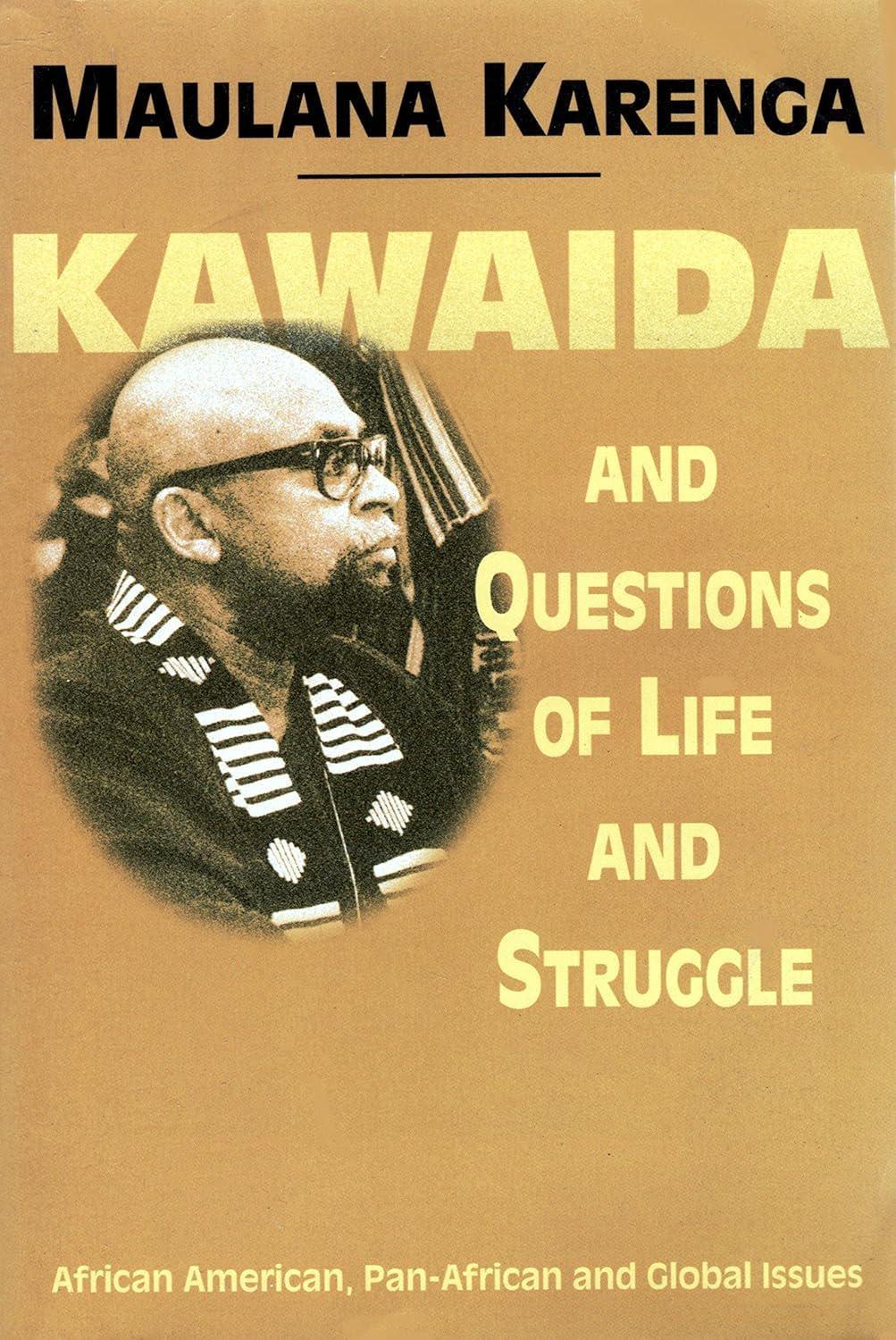Kemetic Science Institute
"Kawaida and Questions of Life and Struggle" by Maulana Karenga
"Kawaida and Questions of Life and Struggle" by Maulana Karenga
Couldn't load pickup availability
Hotep (An Afrikan Word for Peace)!!!
Take notes!!!!!!!!!!
Kawaida and Afrocentricity are two of the most important philosophical foundations for the redevelopment of an Afrikan centered world-view. They both work to help liberate Black people from all forms of White domination.
Dr. Maulana Karanga, Professor of Black Studies at California State University at Long Beach. He co-founded the Us Organization-a revolutionary cultural nationalist Black Power movement established on September 7, 1965 in Los Angeles, California. Dr. Karenga is also the creator of Kawaida. It is a Kiswahili word meaning "tradition" and "reason," pronounced ka-wa-EE-da. He defines Kawaida as, "a communitarian African (Afrikan) philosophy created in the context of the African (Afrikan) American liberation struggle and developed as an ongoing synthesis of the best of African (Afrikan) thought and practice in constant exchange with the world." Kawaida is the foundation for Kwanzaa - An Pan Afrikan centered holiday celebrated from December 26 to January 1.
Each day represents a principle of the Nguzu Saba (Kiswahili for seven principles) of Kwanzaa. For example, day 1 of Kwanzaa, one says Habari Gani (Kiswahili for what's the news). The response should be Umoja (Kiswahili) for unity-to strive for and maintain unity in the family, community, nation, and race. Day 2 of Kwanzaa, one says Harbari Gani. The response should be Kujichagulia (Kiswahili) for self-determination-to define ourselves, name ourselves, create for ourselves and speak for ourselves instead of being, name, created for and spoken for by others. Day 3 of Kwanzaa, one says Harbari Gani. The response should be Ujima (Kiswahili) for collective work and responsibility- to build and maintain our community together and make our sister's and brother's problems our problems and to solve them together. Day 4 of Kwanzaa, one should say Habari Gani. The response should be Ujamaa (Kiswahili) for cooperative economics-to build and maintain our own stores, shop and other businesses and to profit from them together. Day 5 of Kwanzaa, one should say Habari Gani. The response should be Nia (Kiswahili) for purpose-to make our collective vocation the building and developing our community in order to restore our people to their traditional greatness. Day 6 of Kwanzaa, one should say Habari Gani. The response should be Kuumba (Kiswahili) for creativity-to do always as much as we can, in the way we can, in order to leave our community more beautiful and beneficial than we inherited it. Day 7 of Kwanzaa, one should say Habari Gani. The response should be Imani (Kiswahili) for faith-to believe with all our heart in our people, our parents, our teachers, our leaders, and the righteousness and victory of our struggle.
Dr. Molefe Kete Asante, Professor of Afrikan American Studies at Temple University and the creator of the concept of Afrikan centricity (Afrocentricity). He defines Afrocentricity (Afrikan centricity) as " the centerpiece of human regeneration. To the degree that it is incorporated into the lives of millions of Africans on the continent and in the Diaspora, it will become revolutionary. It is purposeful, giving a true sense of destiny based upon the facts of history and experience. The psychology of the African without Afrocentricity (Afrikan centricity) has become a matter of great concern. Instead of looking out from one's own center, the non-Afrocentric person operates in a manner that is negatively predicable. The person's images, symbols, lifestyles, and manners, are contradictory and thereby destructive to personal and collective growth and development.” These two ideological concepts are necessary pillars for a cultural, religious, and the political liberation of Black people in America, in Afrika, and in the Afrikan world community still in the grips of White supremacy and racism.


